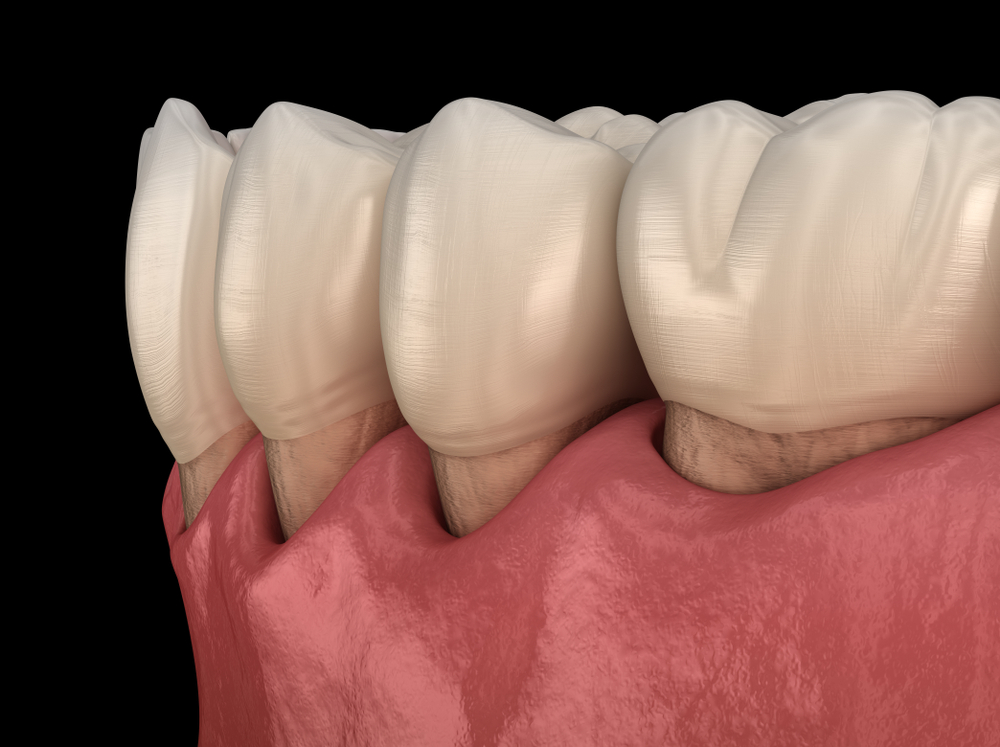Gum recession strikes without notice as you age, but if you are seeing pronounced gum recession, you may want to contact your doctor. Gum recession is a side effect of advanced periodontal disease, which is a disease that surpasses gingivitis. At this point, many patients miss the side effects, because they are in denial on their oral hygiene or they become accustomed to sensitive gums, they think nothing is wrong. Luckily, there are treatments available for gum recession, and a lot of patients deal with this side effect in their life. Reconstructive techniques can help restore your smile even after permanent changes.
Being that a primary reason for gum recession is gum disease, it is important to catch symptoms as early as possible, and your gum disease may be causing other issues. A major treatment to fix gum recession is periodontal plastic surgery. This reconstructive treatment is for the more serious recession cases, but is successful because it adds back soft tissues where you begin lacking.
If you are suffering with the sensitivity being caused by your soft tissue disappearing and are seeking reconstructive help, set up a consultation with your doctor and their staff. Your gums will be fixed in no time, when the plastic surgery occurs. Prior to going through the surgery, you will go through a treatment plan provided by your dentist. This treatment is designed to eliminate infection before the surgery, so healing goes as smoothly as possible.
Gum tissue grafts are quite common to address the appearance of gums after they have receded. This protects any exposed roots or tooth tissue as well, and if you need teeth replaced, it will help support the anchor for a dental implant. Implants are the most commonly recommended method of replacing teeth today.
Your doctor provides the great periodontal disease and gum recession treatments. If you feel like you are suffering from any signs or symptoms from gum recession, it is important and necessary to contact your dental office for information and to schedule an appointment. Your doctor at this appointment will assess the stage you are at and schedule you in for a treatment appointment.



